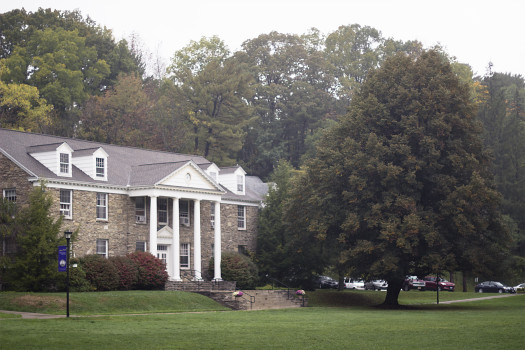Faculty received approval to make comprehensive changes to the current curriculum October of last year. They hope to approve a new set of clearer requirements better aligned with the values of Houghton College that will be easier to communicate to students and advisers.
Major changes are not yet in effect. The updated curriculum could receive approval by November or December of this year, though it is still too soon to say. While small changes to procedure are constantly taking place, the intended shift would the most extreme remodel of the past decade.
One of the primary motivations for change is to remedy the complexity of the current system. Professor of English and director of integrative studies, Susan Bruxvoort-Lipscomb said “One of the big goals of this is to make a general education curriculum that is clearer and more intuitive for advising. That students, their parents, and their advisors should be able to look at our general education curriculum and know what classes to take.” Bruxvoort-Lipscomb continued, “Right now, students have to go to a fairly large six page document with lots of different classes on it. Students will say ‘I made mistakes, I took the wrong classes’ because it’s quite complex, the curriculum we have right now.’”
Junior Michael Sievers said, “I had a general concept of [the integrative studies] when I came in, but I had to do more research on what was required than I anticipated. I think it should be more structured as to the times that [students] take gen ed courses. Students shouldn’t be in their junior and senior years finding out that they still need [integrative studies courses].”
The proposed curriculum would bring a shift to more core classes, specific classes every student must take to fulfill a requirement. Current procedure relies more on distribution requirements, for which a student has the choice among a range of classes that would fulfill a requirement. However, required core classes from the draft proposal should be easier to fit into students’ schedules. Classes such as Biblical Literature and Western Civilization would decrease credit hours from four to three.
Overall, the shift intends to match the ideals of Houghton College. Bruxvoort-Lipscomb noted “Because Houghton is a liberal arts college we really strongly believe in a broad preparation.” As a result, the draft for the new education curriculum recommends a higher emphasis on writing, global engagement, and theology classes than the current program. The science, math, and social studies requirements would remain similar. However, the suggested core classes are the classes most students already choose.
Any adjustments to the curriculum will take place gradually for the sake of current students. “What happens whenever you pass a general education revision like this, is there are transition rules,” explained Bruxvoort-Lipscomb, “The registrar’s office will work with the faculty to decide how to make that transition…so transition rules will make sure students aren’t disadvantaged by the curriculum change.”
“I feel like [the registrar’s office] makes things as it as clear as they can make them,” Sievers said, “but I think the advisors should be more aware that students are trying their best but they may not always understand. There’s sometimes a disconnect between what advisors expect students to know and what students actually know.”
Students who already completed the current general education requirements should find the transition to have little effect on their schedules. It is not yet clear how the changes will affect the ease with which future students can transfer credits earned from advanced placement (AP) exams or other institutions.
Already, the faculty has revised Houghton’s Essential Learning Outcomes (ELOs), consolidating them from fifteen points to only 7. ELOs are “the big goals for what a Houghton education should do” and can be found under Institutional Research on the Houghton website. Houghton’s mission is to “provide an academically challenging, Christ-centered education in the liberal arts and sciences to students from diverse traditions and economic backgrounds and equips them to lead and labor as scholar-servants in a changing world.”
Bruxvoort-Lipscomb recalled asking “How can we devise learning outcomes based on this mission statement?”
Some small changes currently affect new students. For example, the new Personal Health and Wellness class fulfills the previous requirements of Health and Wellness as well as an activity credit. Students will be able to learn of further changes through their advisers and the updated course catalog.


